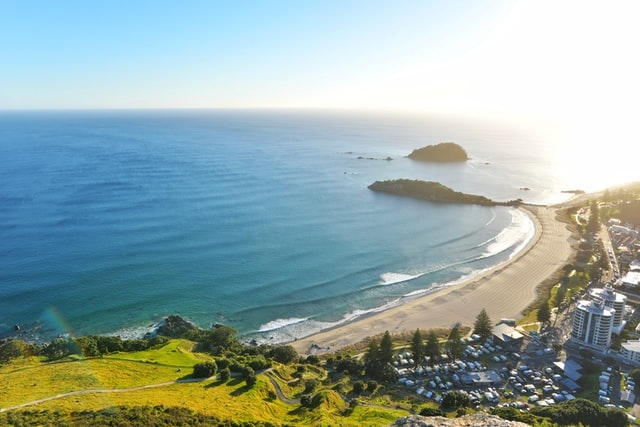Environmental Planning

Why study Environmental Planning?
Accredited by the New Zealand Planning Institute (NZPI), the Bachelor of Environmental Planning recognises that environmental problems and solutions involve social, economic and cultural dimensions as well as the natural and physical environment.
The BEP provides you with practical, industry experience gained across labs, workshops and field trips. You'll also benefit from guest lecturers and practical activities, and will attend industry-focused events such as resource management hearings, case law presentations and mock hearings.
The BEP is a flexible and interdisciplinary degree which provides students with choices in structuring their programme of study. It takes four years to complete and prepares students for a wide range of jobs in New Zealand and overseas.
Career Opportunities
- City Planner
- Environmental Planner
- Iwi Management Planner
- Policy Analyst or Advisor
- Project Manager
- Researcher
- Resource Consent Planner
- Reserves Planner
- Transport Planner
- Environmental Consultant
- Conservation officer
Hamilton, Tauranga, Online
Study Environmental Planning in these qualifications
Subject requirements
The Bachelor of Environmental Planning (BEP) is a professional accredited degree.
To complete the requirements of the BEP, students must complete:
Level 100: ENVPL100, ENVPL101 and MAORI102.
Level 200: ENVPL201, ENVPL203, GEOGY209, GEOGY219 and GEOGY228.
Level 300: ENVPL300, ENVPL302, ENVPL303, ENVPL306 and ENVPL309.
Level 400: ENVPL401, ENVPL402, ENVPL404, ENVPL406, ENVPL407 and ENVPL490.
as well as the following:
15 points from ARTSC101, ARTSC103, ARTSC105, ARTSC106 or ENSLA103.
30 points from BIOEB102, EARTH101, EARTH102, ECONS101, ECONS102, ENVSC101, GEOGY103, MAORI111 or POLSC102.
The three BEP streams and their requirements are:
Science and the Environment: 30 points from BIOEB102, EARTH101, EARTH102, ENVSC101; and ENVSC201; and 30 points from BIOEB202, EARTH221, EARTH231, EARTH241; and SCIEN300; and 30 points from BIOEB303, BIOEB304, BIOEB305, EARTH322, EARTH331, EARTH341 and EARTH342.
Society and the Environment: 30 points from ECONS101, ECONS102, GEOGY101, GEOGY102, POLSC102, SOCIO101, SOCPY100; and POPST201; and 30 points from ECONS200, ECONS202 or ECONS301, ECONS204 or ECONS307, PHILO217, POLCY212, POLSC211, SOCPY200; and one of GEOGY301 or POPST302; and 30 points from ANTHY325, ECONS301, ECONS303, ECONS307, GEOGY301, GEOGY309, GEOGY323, GEOGY328, POLCY318, POLSC327, SOCPY300 and SOCPY301.
Te Ara Taiao: Māori and the Environment: 30 points from MAORI111, MAORI112, MAORI150; and POPST201; and 30 points from MAORI202, MAORI203, MAORI211, MAORI212, MAORI250; and one of GEOGY301 or POPST302; and 30 points from ANTHY325, MAORI302, MAORI303, MAORI304, MAORI311, MAORI312, MAORI350.
Please note: For all graduate subject requirements check the information provided in the papers section above.
Scholarships and prizes
Visit our Scholarship Finder for information about possible scholarships.